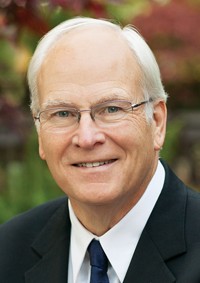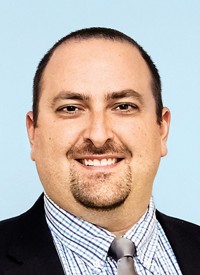Advertisement
Grab your lab coat. Let's get started
Welcome!
Welcome!
Create an account below to get 6 C&EN articles per month, receive newsletters and more - all free.
It seems this is your first time logging in online. Please enter the following information to continue.
As an ACS member you automatically get access to this site. All we need is few more details to create your reading experience.
Not you? Sign in with a different account.
Not you? Sign in with a different account.
ERROR 1
ERROR 1
ERROR 2
ERROR 2
ERROR 2
ERROR 2
ERROR 2
Password and Confirm password must match.
If you have an ACS member number, please enter it here so we can link this account to your membership. (optional)
ERROR 2
ACS values your privacy. By submitting your information, you are gaining access to C&EN and subscribing to our weekly newsletter. We use the information you provide to make your reading experience better, and we will never sell your data to third party members.
Comment
Guidance to ACS members on engaging in political activities
by Paul Jagodzinski, chair, ACS Committee on Public Affairs and Public Relations
March 7, 2020
| A version of this story appeared in
Volume 98, Issue 9

Politics. It’s a topic that is ever present in our society, especially here in the US, where we are preparing for the November general election. With this constant focus, it is quite possible that members of the American Chemical Society, in their role as private citizens, may wish to become involved politically in offering support to candidates at all levels of government. Further, members may want ACS to support candidates that represent positions consistent with the society’s mission and goals. This last piece is problematic, however, because of ACS’s charter. Let me explain.
ACS is a nationally chartered organization that has a 501(c)(3) nonprofit designation from the Internal Revenue Service. This means that ACS is prohibited from engaging in political activities, such as actively working for or financially supporting a candidate representing a specific political party.
An important note: classification as a 501(c)(3) organization doesn’t affect ACS’s ability to advocate for or lobby on issues. In fact, ACS is permitted to advocate for policy and legislative matters because it is a federally registered lobbying organization as specified by the Lobbying Disclosure Act of 1995 and because ACS’s paid staff who meet the definition of a lobbyist are also registered under this act. ACS members, as volunteers, are free to engage with elected officials to advocate for established ACS policy positions at any time; as private citizens, they can certainly advocate for any topics that interest them.
But returning to engaging in political activities, it is important to be mindful that you do so in your private capacity and not on behalf of ACS or in your capacity as a volunteer governance leader for the society. This will ensure that ACS remains in compliance with the IRS code. As a private citizen, you can engage in political activities and support candidates, whether it be volunteering for a campaign, making financial contributions, or speaking on behalf of a candidate.
If your personal engagement involves offering financial support to a political candidate on the federal level (those running for US House of Representatives or US Senate seats), the Federal Election Commission (FEC) requires campaigns to report contributions of $200 or more from individuals or $200 or more of aggregated contributions from the same individual for that election cycle. The FEC requires that campaigns collect the individual’s name, address, employer, and occupation. ACS members so inclined to offer financial support are reminded that they do so as private citizens, and nothing should imply they are doing so on behalf of ACS.
To help clarify, let’s look at a couple of scenarios to distinguish between political and advocacy activities.
▸ Scenario A: A member of the ACS Board of Directors is invited by a colleague, a chemist running for the US House of Representatives, to attend a fundraiser at a local restaurant and to make remarks at the event in support of the candidate. This is clearly a political activity, and the ACS board member may attend the event as long as the board member is identified only as a private citizen and speaks from that capacity in offering support for the candidate and urging others to do likewise. If the ACS board member is represented as an ACS board member and gives the impression that attendance is on behalf of ACS, these remarks could constitute a serious violation of the law that could potentially include fines and penalties against the society, including loss of its 501(c)(3) nonprofit status.
▸ Scenario B: An ACS member schedules a meeting with a US senator to advocate for the ACS public policy statement on climate change and its recommendations. The ACS member says that they are an ACS member and volunteer and states that they are meeting in that capacity and on behalf of ACS. This is a legitimate advocacy activity based on an established ACS public policy statement and is in keeping with activities allowed as a 501(c)(3) organization. Had the ACS member arranged the meeting under the guise of an official ACS advocacy engagement but instead discussed personal views on societal matters outside the scope of established ACS public policy statements, this would not be a legitimate ACS advocacy activity. While not a legal violation, it would potentially create confusion with the elected official as to what ACS stands for and advocates for.
I hope that this Comment has helped put in perspective the differences between political and advocacy activities and that it will help you formulate your plans for the coming year. If you have any questions or would like more information, please reach out to me at externalaffairs@acs.org.
Views expressed are those of the author and not necessarily those of C&EN or ACS.





Join the conversation
Contact the reporter
Submit a Letter to the Editor for publication
Engage with us on Twitter